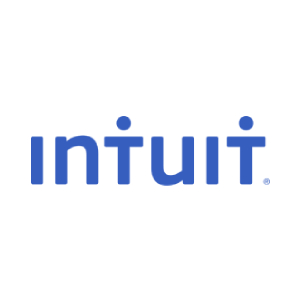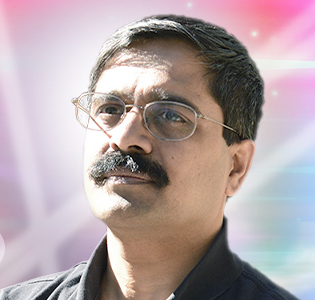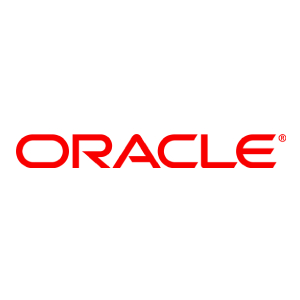Snowflake's Farhan Choudhary: The Future of Data Applications

Data is the new gold, but how do we mine it effectively? Farhan Choudhary, Senior Product Marketing Manager & Evangelist at Snowflake, breaks down the alchemy of turning raw data into actionable insights at Great International Developer Summit. Choudhary kicked off his insightful talk by demystifying what Data Applications really are. He defines them as platforms—either customer-facing or employee-facing—that handle massive volumes of data to churn out actionable insights. These Data Applications are the backbone of various stakeholders, from everyday consumers to corporate decision-makers.
“Data applications are either customer-facing or employee-facing applications that process large amounts of information to deliver actionable insights, value to consumers, value to users, value to stakeholders.”
But what does this mean for the average user? It means a more personalized, efficient, and responsive service, whether you're shopping online or analyzing market trends for your business. Data Applications are revolutionizing the way we interact with technology, making our lives easier and more efficient.
However, the road to creating these Data Applications is fraught with challenges. Choudhary outlines several hurdles that developers and organizations face, ranging from Data Organization and Data Security to resource management and cost-efficiency. These challenges have real-world implications. Poor Data Organization can lead to inaccurate analytics, while lax Data Security measures can expose sensitive customer information.
“It's important to think about privacy, it's important to think about security. How do I run continuous workloads that do not collide with one another so resource contention doesn't occur?”
And speaking of Data Security and Data Privacy, let's not forget the growing focus on ethical data collection and usage. As Data Applications proliferate, the spotlight on ethical Data Security and Data Privacy is intensifying. Regulatory frameworks like GDPR are increasingly dictating how data should be managed, making Data Privacy a trend that's hard to ignore. This is pushing companies to invest more in secure data storage solutions and ethical data usage policies, affecting both the development process and the end-user experience.
“There are two things that you must consider while you are making your decision on your data application: one being deployment and the other being tenancy.”
When it comes to the nitty-gritty of designing Data Applications, Choudhary zeroes in on two pivotal factors: Deployment Models and tenancy. These considerations guide decisions about data processing locations, ownership, and resource utilization. He also presents a framework of nine essential traits for evaluating Deployment Models, covering everything from architecture to cost considerations. This is crucial because the wrong Deployment Model can lead to inefficiencies that could cost companies both time and money.
On the subject of Deployment Models, it's worth noting the rise of Edge Computing. This approach processes data closer to its source, minimizing latency and boosting speed. Particularly beneficial for IoT devices and real-time analytics, Edge Computing is a trend that's gaining momentum. It's not just a technological shift; it's a paradigm change in how we think about data processing and storage.
“In connected applications, your customer is going to be holding the source data. They're going to be offering you, as a builder, credentials. You then go inside their environment and work an application out.”
Choudhary then walks us through three primary Deployment Models for Data Applications: Managed Applications, Connected Applications, and Native Applications. Each comes with its own set of pros and cons, from scalability and cost to Data Security and data control. For instance, Managed Applications offer the benefit of control but at the cost of greater responsibility for Data Security. Connected Applications, on the other hand, reduce the developer's data responsibility but require a secure method for credential sharing.
In the Managed Applications model, developers have the reins, controlling the entire user experience. This approach allows for scalability but also puts the onus of cost and Data Security on the developers. On the flip side, Connected Applications let customers keep their data close to the chest, although this does necessitate sharing credentials—a potential security risk.
The Native Applications model offers a secure and flexible environment, allowing customers to run Data Applications without sacrificing Data Privacy. However, these applications are often limited to specific architectural frameworks. This means that while they offer enhanced Data Security, they may not be as flexible or as easily customizable as other models.
And let's not overlook the integration of Artificial Intelligence and Machine Learning into Data Applications. These technologies are increasingly becoming integral, enabling predictive analytics and automated decision-making. It's a trend that shows no signs of slowing down. The integration of AI and Machine Learning is not just a fancy add-on but a necessity for staying competitive in today's data-driven world.
“You can now share your applications and monetize your applications after having them packaged and neatly tied up, and you can protect your own IP.”
Looking ahead, Choudhary hints at the future of Data Applications, suggesting the emergence of hybrid models that blend Managed Applications and Connected Applications. He also explores the monetization potential through marketplaces like Snowflake, which facilitates both data sharing and Application sharing. This opens up new avenues for revenue generation and cross-platform integration, making it a win-win for both developers and end-users.
Quantum Computing is another frontier that promises to redefine the landscape of Data Applications. Though still in its nascent stages, this technology promises to perform complex calculations at speeds previously unimaginable, paving the way for real-time data analytics and decision-making.
Finally, Choudhary wraps up his comprehensive talk with an overview of the complexities in developing Data Applications. As data continues to become an increasingly vital asset, understanding these complexities is essential for both developers and organizations alike.
So, whether you're a developer, a decision-maker, or just someone interested in the future of Data Applications, Farhan Choudhary's insights offer a roadmap to understanding and leveraging the power of Data Applications in today's fast-paced world.
Watch the full video of the talk, here.
Have questions or comments about this article? Reach out to us here.
Banner Image Credits: Farhan Choudhary at Great International Developer Summit








